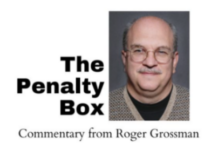
It was the ordinance on the electric vehicle charging stations that drew a few questions, including some “clarification” questions from Boy Scout Kevin Gough.
The EV charging stations ordinance, which was approved 6-0 on first reading Oct. 3, establishes various fees and parking regulations regarding city-owned EV charging stations.
In 2020 the city agreed to apply for a grant through Michiana Area Council of Governments from the Indiana Volkswagen Environmental Mitigation Trust Program. As part of the grant agreement, the city agreed to install electric vehicle charging stations. Part of the grant also requires that the city provide free charging for the first two hours for the first two years.
Mayor Joe Thallemer told the Council Monday that a ribbon-cutting ceremony for the charging stations was held that morning. The stations were activated Thursday night.
Assistant City Planner Bekah Schrag said since the stations were activated, “We’ve seen 18 different sessions already using the electric vehicle stations, the charging stations. Of those 18 sessions, it’s been five different drivers and the average session length is about 1-1/2 hours. So this ordinance is asking for the city to charge an hourly fee to charge an electric vehicle. And after two hours, because the city agreed to allow free charging for the first two years for the first two hours, so after the first two hours, this ordinance allows us to charge a $2 fee to help cover our electrical costs.”
She said, so far, the city has dispensed 123 kiloWatt hours and “they have already been used and there’s been very little information about them available to the public.” She said she expects the usage to go up as people find out the charging stations exist. They are located on Main Street next to the county courthouse and in the city parking lot south of Expressions along South Buffalo Street.
Thallemer said the stations seem to be pretty easy to use. He said there’s obviously a need for them, and the charging stations were put in with the help of the Michiana Area Council of Governments and Zimmer Biomet. He lauded Schrag for doing a great job with them.
Councilwoman Cindy Dobbins, who was not present at the Oct. 3 meeting, asked Monday if the grant reimbursed the city for the first two years. Schrag answered, “When the city signed the grant with MACOG, a regional cohort had decided that they were going to allow two hours of free charging for the first two years and the city agreed to do that. So we are not getting reimbursed for those electrical charges unless an EV owner stays longer than two hours.”
Dobbins asked if $2 per hour over the initial first two hours was enough considering credit cards charge a fee and if that money comes back to the city. Schrag said the city’s electrical charges end up being about $1 an hour so the $2 per hour will help the city cover the electrical charges, any meter fees and some of the installation costs as time goes on. Schrag said the city should be able to cover the credit card fees, too.
Schrag said the purpose of the stations were not to provide a person’s vehicle with a full charge necessarily. “It’s to provide the opportunity to get some of your mileage back while you shop downtown and see the stores and visit the city of Warsaw,” she said.
Councilman Mike Klondaris asked if there was a time limit between the times a person charges their vehicle. Schrag said they could charge it again right away, but the person would have to come to their vehicle, unplug it and reinitiate another session. After the first two years, the ordinance will charge the $2 hourly rate from the start.
Dobbins said the Council would have the opportunity to revisit the ordinance down the road, and Schrag said absolutely.
All payments are made through an app.
Councilwoman Diane Quance made a motion to approve the ordinance on second reading, Klondaris seconded it and it was approved 5-0. Councilmen Jack Wilhite and Jeff Grose were absent from the meeting.
Boy Scout Kevin Gough, who was with Troop 730 at the meeting, later asked some clarifying questions about the ordinance. He said it sounds like a very good project that was good for the community, but he asked if the free first two hours for the first two years were for the driver’s first two hours or the first two hours of a session.
Schrag said it’s the first two hours of a session, not per driver, because there is no way for a charging station to recognize whether it’s a different user, the same user or the same car.
The Scout then asked if there was any way to stop someone from taking out the charger and putting it back in immediately to not have any fees for over the first two hours. Schrag said the simple answer was no, there wasn’t a way to stop someone from going back to the car every two hours, unplugging it, putting it back in the charging station and restarting the session and putting it back into their car.
“However, they would have to go through all of those steps to do so, which may be a little bit of a hindrance, but, yes, it could happen,” she said.
Schrag also said she does not have the ability to see if the same driver is continuing to restart their session. She can see unique drivers, the number of sessions and the overall electricity use, but she, as the account administrator, can’t see the person’s name attached to each time they plug their car into the charging station. Signs next to the stations say there is a two-hour limit and an electric vehicle can be parked there while it is charging.
All four of the other ordinances approved Monday on second reading were in regard to the 2023 budget.
The Council had a public hearing on the ordinance regarding appropriations and tax rates at the Oct. 3 meeting. Thallemer said Monday that the city’s departments have a little bit of paring down to do to balance the budget. It will be a little tougher with the inflation that’s going on. City employees are receiving a 4% salary increase in 2023. There are still cuts to make to the departments’ proposed 2023 budgets after the Department of Local Government Finance provides the 1782 Notice to the city, which is a finalization of the budget.
Councilwoman Diane Quance made the motion to approve the ordinance, and Dobbins seconded it. It was approved 5-0.
Human Resource Director Denny Harlan presented the general salary, fire salary and police salary ordinances. There were no changes to them since the Oct. 3 meeting except for a clerical change. Under the insurance premiums, Harlan said they needed to end in an even number so the clerk-treasurer’s office could take them out of two payrolls. So all of them that had an odd number were taken down 1 cent.
All three salary ordinances were approved 5-0.




